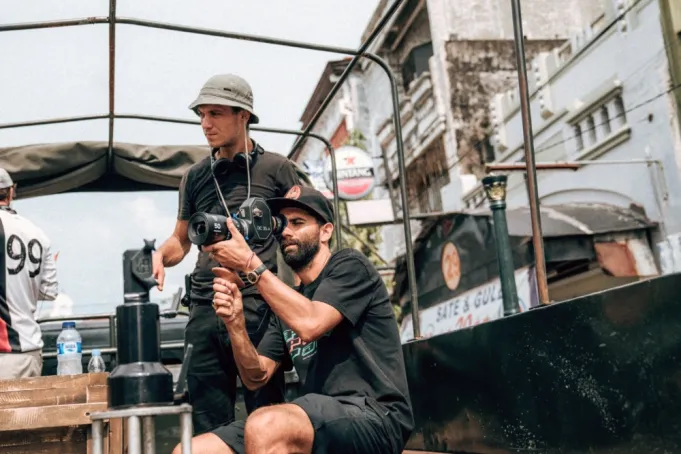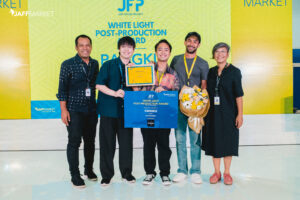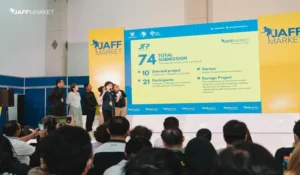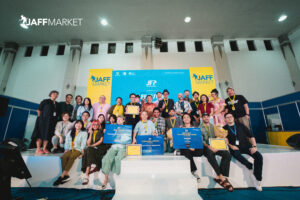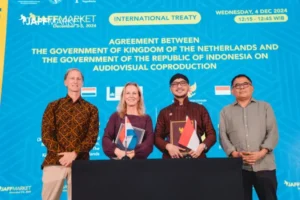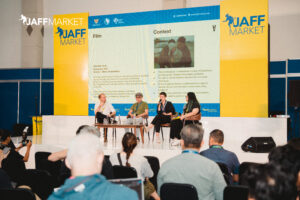The newly signed co-production treaty between the Netherlands and Indonesia aims to strengthen bilateral film collaboration, providing filmmakers from both countries access to national funding schemes and production incentives, industry leaders revealed at the inaugural JAFF Market in Jogja, Indonesia during a panel.
The inaugural JAFF Market takes place alongside the Jogja-Netpac Asian Film Festival (JAFF) in Yogyakarta from Dec. 3-5. The panel was moderated by producer Lorna Tee of An Original Picture NL, who also serves as JAFF Market advisor.
Sandra den Hamer, CEO of the Netherlands Film Fund, highlighted that the treaty emerged from grassroots interest rather than top-down policy. “It comes from the filmmakers and producers. There’s a lot of interest to make films together, or to make films in Indonesia, to retell our history,” she said.
The treaty follows successful agreements the Netherlands has established with Canada, China, France, Germany, Norway and South Africa. With South Africa, they created a concrete joint fund that has supported 12 films in development and one in production, den Hamer noted.
The collaboration between producer Sander Verdonk of the Netherlands’ New Amsterdam and Shanty Hermayn of Indonesia’s Base Entertainment on Jim Taihuttu’s war drama “The East” (De Oost) served as a proving ground for Dutch-Indonesian co-production potential. The film, which involved over 800 cast and crew members across 40 locations in Java, navigated complex logistical challenges including visa issues and cultural differences in production practices.
Hermayn revealed that Indonesian equity investment came through market-based funding against distribution rights. “I can contribute in funding, but it needs to be from the market,” she explained of the Indonesian financing structure in the absence of government funding mechanisms.
The film found success on Prime Video during the pandemic, with Verdonk noting it marked “the first real Dutch production” for the platform in the territory. In Indonesia, the film performed strongly on Mola TV and later aired on free-to-air television.
Looking ahead, Verdonk and Hermayn are collaborating on Taihuttu’s “Hemelrijk,” a limited series set around a plantation in Bandung and a feature film adaptation of “Pulang” (Home), the acclaimed novel by Indonesian author Leila Chudori. The projects aims to build on lessons learned from “The East” while leveraging new opportunities under the treaty framework.
Producer Yulia Evina Bhara emphasized that the treaty provides legal authority regarding status and financial contributions. “We can access more funding, not only like Hubert Bals Fund,” she said, referring to the competitive Netherlands international fund that receives over 1,000 applications per round.
Distribution remains a key challenge, with limited theatrical releases for Asian films in the Netherlands and Dutch films in Indonesia. The treaty presents an opportunity to address this gap, as Indonesia’s theatrical market reaches for an estimated 80 million admissions this year with domestic films commanding 68% market share, while Dutch films maintain 30-40% of their home market.
By Naman Ramachandran
